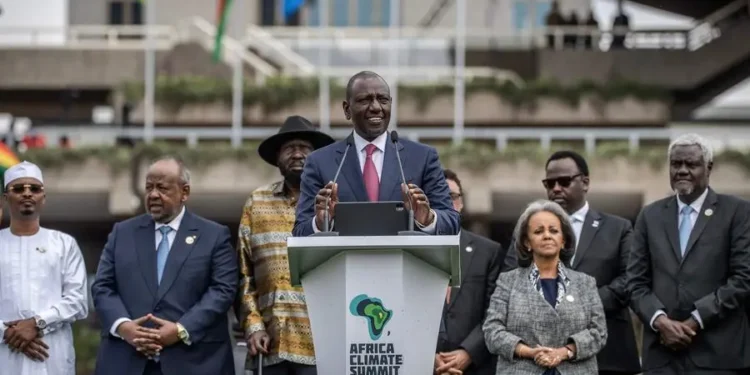Leaders from Somalia, Ethiopia, Djibouti, and Eritrea have emphasized the urgent need for collective action to combat the devastating impacts of climate change. They stressed the significance of the upcoming COP-28 climate conference in the United Arab Emirates as an opportunity for the global community to fulfill its obligations to vulnerable nations.
Read More: The African Renaissance –A Stage for Creativity and Technology
Hamza Abdi Barre, the Prime Minister of Somalia, highlighted the power of solidarity and cooperation in an interconnected world. He called for accelerated efforts to achieve the Sustainable Development Goals (SDGs) and discussed Somalia’s fight against extremism.
Demeke Mekonnen Hassen, Deputy Prime Minister of Ethiopia, questioned whether the world had the political will to prioritize global partnership over geopolitical competition. He expressed concern about rising tensions, poverty, and hunger, along with the off-track progress towards the SDGs. Hassen also called for responsible use of new technologies like artificial intelligence and emphasized the need for Security Council reform, including permanent seats for Africa.
Mahamoud Ali Youssouf, Djibouti’s Minister for Foreign Affairs, stressed the importance of strengthening multilateralism and international cooperation. He warned against “minilateralism” and highlighted the need for massive investments to create a system that addresses current geopolitical realities.
Osman Saleh Mohammed, Eritrea’s Minister for Foreign Affairs, called for the elevation of the United Nations, urging reforms beyond nominal changes to the Security Council. He criticized the misuse of Security Council membership for narrow national interests and advocated for a wider spectrum of Member States in the Council.
Read More: What are Carbon Credits? What impact do they have on Africa’s Economy
These leaders underscored the need for global solidarity, reform of international institutions, and cooperation to address pressing challenges, including climate change, conflict, and the restructuring of multilateral systems.









